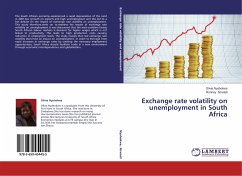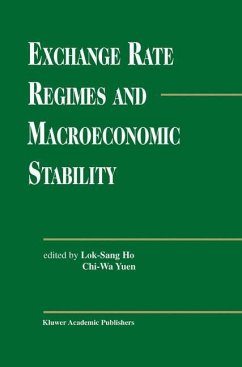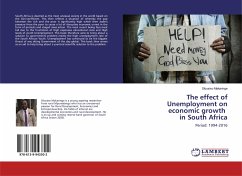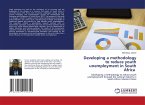The South African economy experienced a rapid depreciation of the rand in 2001,low growth on exports and high unemployment and this led to a hot debate on the impact of exchange rate volatility on unemployment. This study therefore,went on to examine the impact of exchange rate volatility on unemployment.It was discovered that the main problem facing South African labour markets is demand for higher wages which is not linked to productivity. This leads to high production costs causing reduction in employment levels. The study reveals that real exchange rate volatility does have an impact on unemployment. In order to leverage from rapid increases in exchange rates by creating the necessary employment opportunities, South Africa should facilitate trade in a new environment through economic interdependence and globalisation.
Bitte wählen Sie Ihr Anliegen aus.
Rechnungen
Retourenschein anfordern
Bestellstatus
Storno








